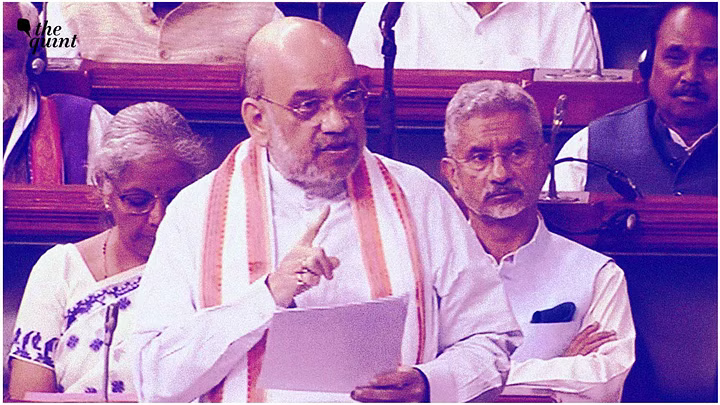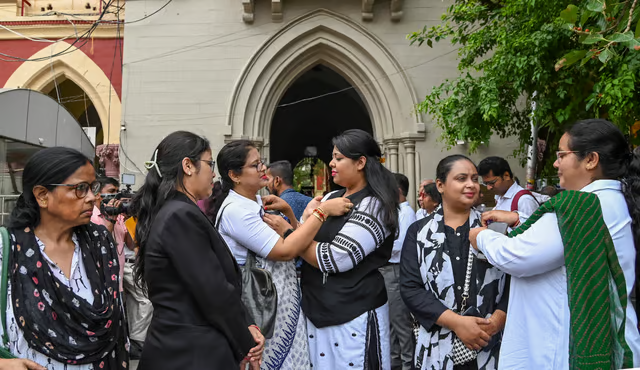
An analysis into the laws governing Necrophilia in India in view of the decision in Rangaraju v. State of Karnataka
Abhishek Sanjay and Tanya Sara George
Abhishek Sanjay and Tanya Sara George*
Introduction
The phrase ‘Dead men tell no tales’ has always been in the midst of pop culture dialogues. Today, it has moved out of fiction to become a real and gruesome excuse for far too many corpses.
The cornerstone of any robust judicial framework lies in its ability to tide over the sea of dilemmas in the modern world. Necrophilia, or the act of engaging in sexual intercourse with a dead body, is one such paradigm that Indian legislations have refused to incorporate into its avenues. Necrophilia, otherwise referred to as ‘necrophilism’, ‘necrolagnia’, ‘necrocoitus’, ‘necrochlesis’, and ‘thanatophilia’, has its origins in the Greek words ‘phillios’ and ‘nekros’, literally transcribing to the attraction to a dead body. Put into simple terms, a necrophile is an individual who derives sexual pleasure from intercourse with a dead body, while necrophilia is the commission of intercourse with a corpse.
For centuries, women have been compelled to live their lives protecting their dignity. Today, our society has regressed to need this protection, even in death. Furthermore, the sanctitude provided to our dead has been perverted due to the same, and the lacuna of laws against necrophilia is unconscionable. In a country like India, characterised by its shared social consciousness on values and morality, the rampant rise in necrophilia necessitates immediate policy intervention.
This piece explore the legal quandary necrophilia poses to our country. It addresses the limitations of existing statutory provisions and further highlights recent legal developments that exemplify the need for statutory reforms in this sphere.
The dearth of statutory provisions for the dead
Although the statutory framework in India confers the right to dignity even after death, fortified by various judgements, the distressing and grotesque act of necrophilia finds no specific recognition. The Indian criminal legal system, embodied by the Indian Penal Code ( hereinafter, “the IPC”) and its associated statutes, does not explicitly address necrophilia as an individual offense. The current provisions for the dead fail to adequately address significant issues and leaves the act of necrophilia in a legal quandary.
Under the IPC, Section 297 comes closest to encompassing necrophiliac acts by criminalizing the desecration or trespassing of graves or burial places. However, this provision primarily focuses on the protection of burial grounds and the sanctity of the deceased’s resting place, rather than specifically targeting necrophilia and related sadistic activities against the corpse. The drawback being that, an individual who is present in his official capacity, i.e., a morgue attendee or cremator who has not committed the act of ‘trespass’ mentioned in this section would not be liable even if he has penetrated the corpse. Another major contention put forth against this provision being used to punish necrophiles has been the meagre sentence it confers to the convicted, with the maximum imprisonment lasting only up to one year.
Section 377 of the IPC lays down the law governing ‘unnatural intercourse’. It is undeniable that committing an act of intercourse with a corpse goes against the order of nature, but on strictly interpreting this section, a recourse to necrophilia is yet to be found. The words ‘man’ and ‘woman’ used in this section have been defined with respect to their quantifiable biological component, their age. Since this factor is only attributed to living beings, this provision cannot attract the crime of defiling the dead. Applying the same reasoning, the interpretations of the notable provisions of sections 375 and 376, or the punishment for rape, would be restricted to living women, barring these corpses from legal recourse.
Recent developments vis-à-vis Rangaraju v. State of Karnataka
The lack of adequate constitutional safeguards against necrophilia has been highlighted by a recent Karnataka High Court judgement, causing a furore among citizens. In the case of Rangaraju v. State of Karnataka (hereinafter “Rangaraju”), a 21-year-old woman was returning home after her class when she was dragged to a bush where the accused sliced her throat. It was further proved that the accused then proceeded to rape her corpse. On the evidence presented, the Sessions Judge convicted the accused for the murder and rape of the victim.
The case which went on appeal, was heard by a Division Bench which upheld the conviction of the accused on the charge of murder, but discerned flaws in the single Judge’s conviction for rape, which led to the acquittal of the accused. The bench discussed whether the raping of a corpse would attract the provisions of section 376 and, ultimately, answered in the negative.
The bench discussed provisions that brushed upon necrophilia but observed that none of these provisions had explicitly addressed the offense of necrophilia and thus, could not be applied. The court also drew parallels to various other countries that have already provided for this offense in their legislations. The court, inter alia, considered provisions of the Sexual Offences Act of the UK which per se includes necrophilia and makes the penetration of a corpse an offense, whether done knowingly or recklessly. Further, provisions of the Criminal Code of Canada were also discussed. Albeit similar to the provisions of Section 297 of the IPC, the provision holds a maximum imprisonment of five years, thus enforcing better deterrence of the crime.
The bench also called for new standards to prevent the vile act of necrophilia. This included the installation of CCTV cameras across morgues and private hospitals in the state and increasing the efficiency and security in producing clinical logs and storing information. The recommendation also included the institution of a periodical cleaning system and sensitisation of staff so that the dignity of the dead is maintained.
The need for Statutory Changes
The approach that the Bench adopted can be compared to two doctrines of law. The first being the principle of nulla poema sine lege, which protects a person from being arrested for an act that is not explicitly illegal. The second being the rule of lenity, a strict method of statutory interpretation where provisions of a statute are construed against the government and in favour of the defendant when there are ambiguities in the provisions. Along the lines of the second doctrine, the court had found the accused to not be guilty of the offence of necrophilia, and thereby, placed the onus on the State to formulate new provisions which account for this crime.
The Bench discerned lacunas in the law and also noted that a human corpse does not fall within the ambit of a ‘person’ under the Indian Penal Code, thus preventing the immoral act from falling under section 375, i.e., rape. The Bench, on observing the inability of preexisting provisions to deter the crime, averred that reforms must be brought in order to re-establish the sanctity provided to our dead. The Bench recommended an amendment of Section 377 of the IPC to incorporate the violation of a corpse under categories of necrophilia or sadism.
Conclusion
The ambiguity instituted through this significant gap in the legislative system has caught the attention of the masses, placing pressure on the State to address this major defect in the system.
The recommendations made by the court in Rangarajan case must be implemented across the country as a preventive measure against necrophilia. An amendment must be made to either section 377 or section 375 to incorporate abuse of the dead, or the State must constitute a new provision within the Indian Penal Code that criminalizes necrophilia. The drawbacks in section 297 must also be rectified to include any person who violates a body, along with a significant increase in the sentence of imprisonment.
These legislative changes can be incorporated with reference to the criminalization of necrophilia in other countries such as the United Kingdom, Canada, and New Zealand. With cases of necrophilia coming to light across the country, the State must adapt and accommodate a law against necrophilia on par with the principles of morality held by society.
*The authors are students of law. Abhishek Sanjay is a 1st year student at NALSAR and Tanya Sara George is a 2nd year student at MNLU, Mumbai.


